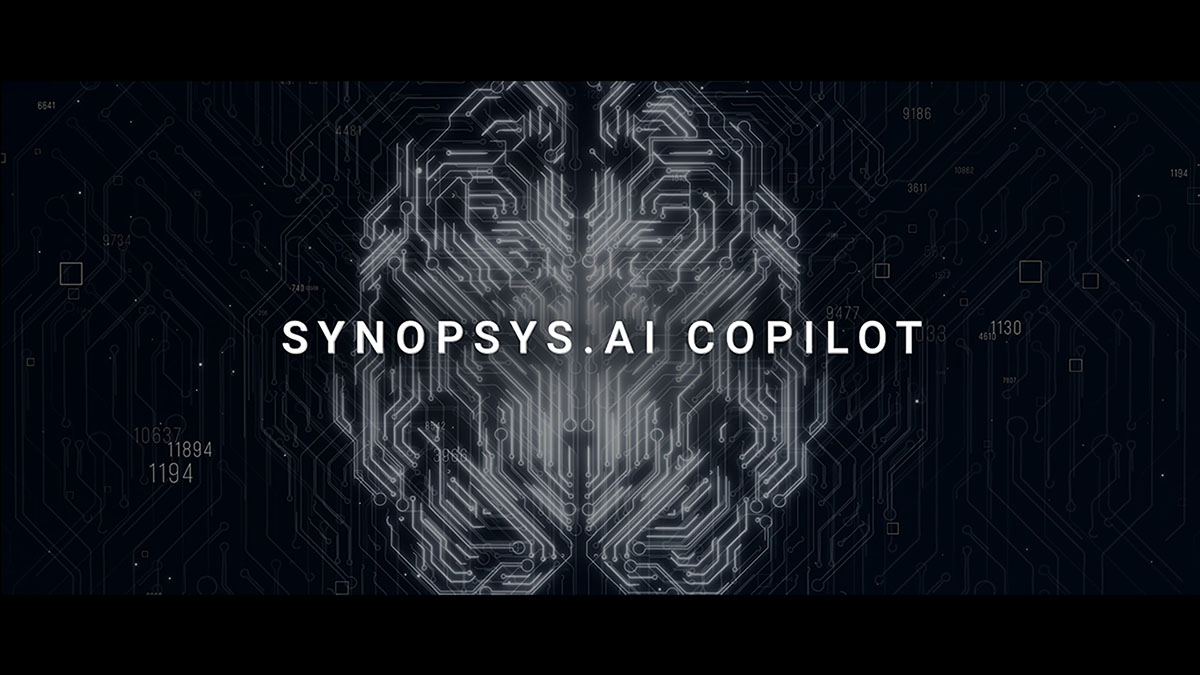 AI
AI
 AI
AI
 AI
AI
Synopsys Inc. said today it’s bringing the capabilities of generative artificial intelligence to the computer chip design software industry.
The new Synopsis.ai Copilot is already being used in early access by customers. It runs on Microsoft Corp.’s Azure OpenAI Service and it provides generative AI support via natural language to chip design teams, the company explained. It’s the first in a number of planned new generative AI capabilities to be integrated with its software, the company added.
The idea of applying AI to the enormously complex area of semiconductor design is a logical one that Synopsys has been pursuing for some time. It announced a comprehensive suite of artificial intelligence tools to aid in the design, verification and testing of advanced computer chips in March, solutions for functional verification and silicon testing. Later, when the company’s founder and outgoing Chief Executive Aart de Geus announced his plans to step down in August, he stated that it was investing heavily in research and development with the intention of capitalizing on the most advanced AI technologies.
Those efforts have now come to fruition with the company’s new copilot tool, which was developed via a strategic collaboration with Microsoft. It’s leverages multiple large language models available through the OpenAI Service on Azure.
With its Copilot, Synopsys is bringing one of the most compelling aspects of generative AI to the chip design process. Designers will now be able to use natural language to ask the copilot to perform many of the highly technical tasks involved in the design of new chips.
“The semiconductor industry is racing to develop faster, more efficient, and optimized computing, which is also driving complexity,” Shankar Krishnamoorthy, general manager of the Synopsys EDA Group, said in a statement. “At the same time, we’re facing a projected 15% to 30% workforce gap for chip design engineers by 2030.”
Synopsys said its generative AI tools are being developed partly to address this skills gap. The copilot is said to have the ability to learn new skills over time, making it easier for chipmakers to improve productivity and achieve their design targets at every stage of the design process, “from system architecture exploration to design and manufacturing.”
The copilot is deployable on any on-premises or cloud environment, including the Azure cloud platform, the company says. Safety also highlighted, with Synopsys stressing that it is focused on building responsible AI systems that are “safe and trustworthy.”
Holger Mueller of Constellation Research Inc. said this is a bold move by Synopsys and demonstrates its ambition to leverage AI to improve the productivity of chip makers by assisting in all aspects of chip design. “We may even see AI helping to build specialized AI chips soon,” he added. “Likely the rest of the chip design software industry will follow suit with their own SaaS-based EDA offerings, so it’s not clear how long Synopsys will stay in the lead in terms of reinventing chipmaking with AI. But for now it is.”
Microsoft Corporate Vice President Corey Sanders said his company has a shared vision for accelerating semiconductor innovation through cloud and AI. “Microsoft’s engineering teams worked closely with Synopsys to bring the transformational power of generative AI to EDA, which will empower semiconductor design engineers using the Synopsys.ai Copilot with the best AI infrastructure, models and toolchain,” he said.
Support our mission to keep content open and free by engaging with theCUBE community. Join theCUBE’s Alumni Trust Network, where technology leaders connect, share intelligence and create opportunities.
Founded by tech visionaries John Furrier and Dave Vellante, SiliconANGLE Media has built a dynamic ecosystem of industry-leading digital media brands that reach 15+ million elite tech professionals. Our new proprietary theCUBE AI Video Cloud is breaking ground in audience interaction, leveraging theCUBEai.com neural network to help technology companies make data-driven decisions and stay at the forefront of industry conversations.